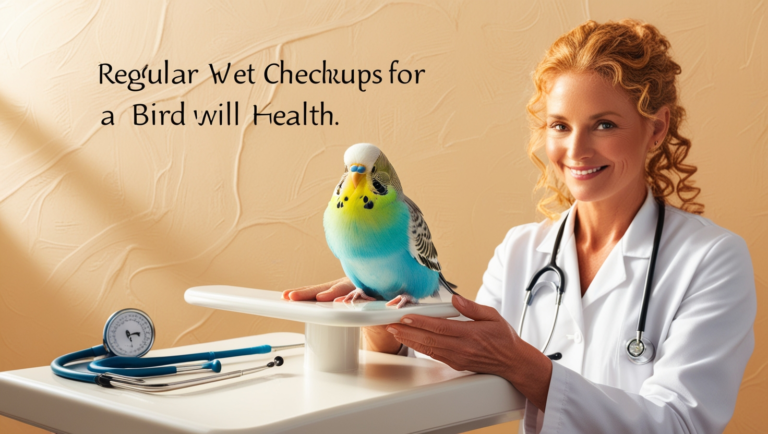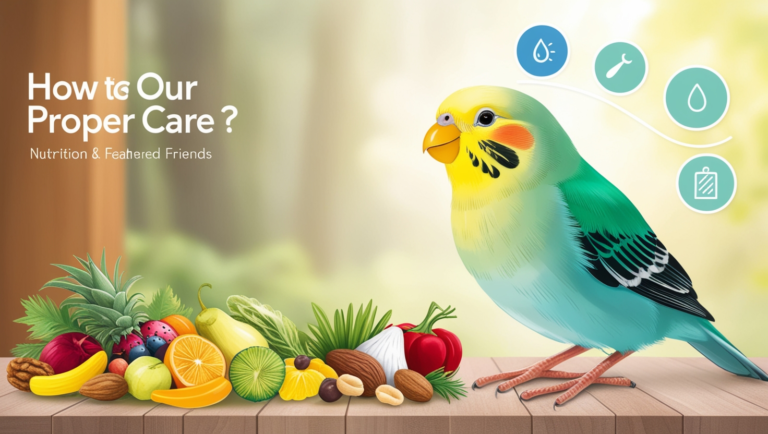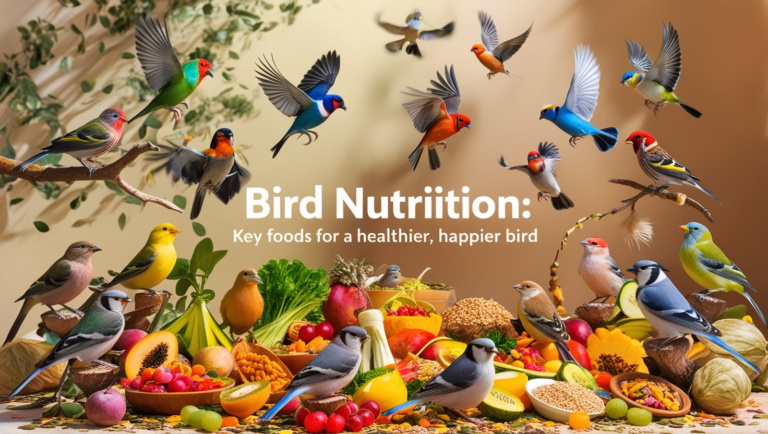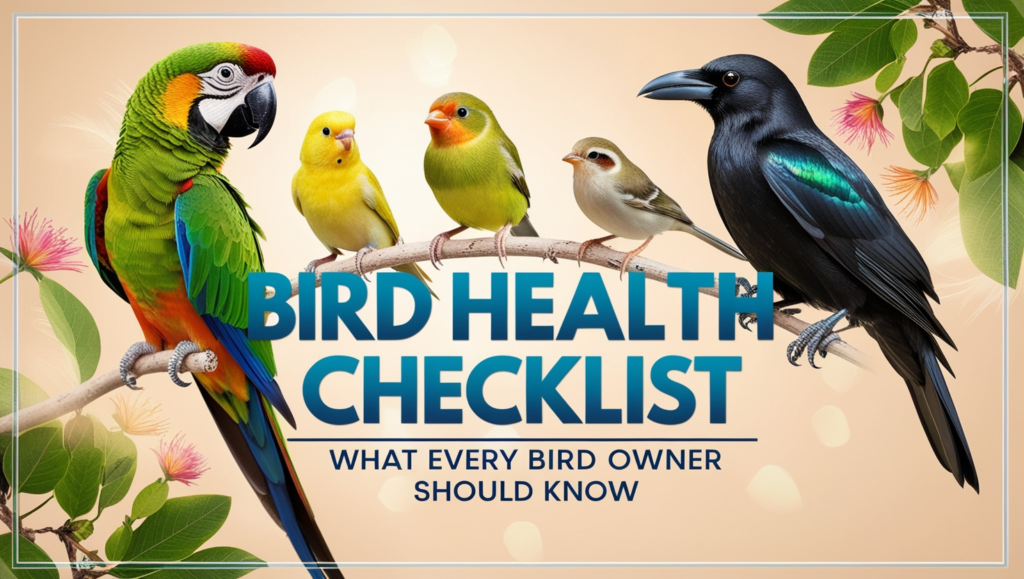
Maintaining your bird’s health is crucial for ensuring a long, happy life for your feathered friend. Proper care involves more than just feeding and cleaning; it requires a comprehensive approach to their overall well-being. This Bird Health Checklist will guide you through essential aspects of avian care, helping you keep your bird in top condition.
I. Provide a Balanced Diet
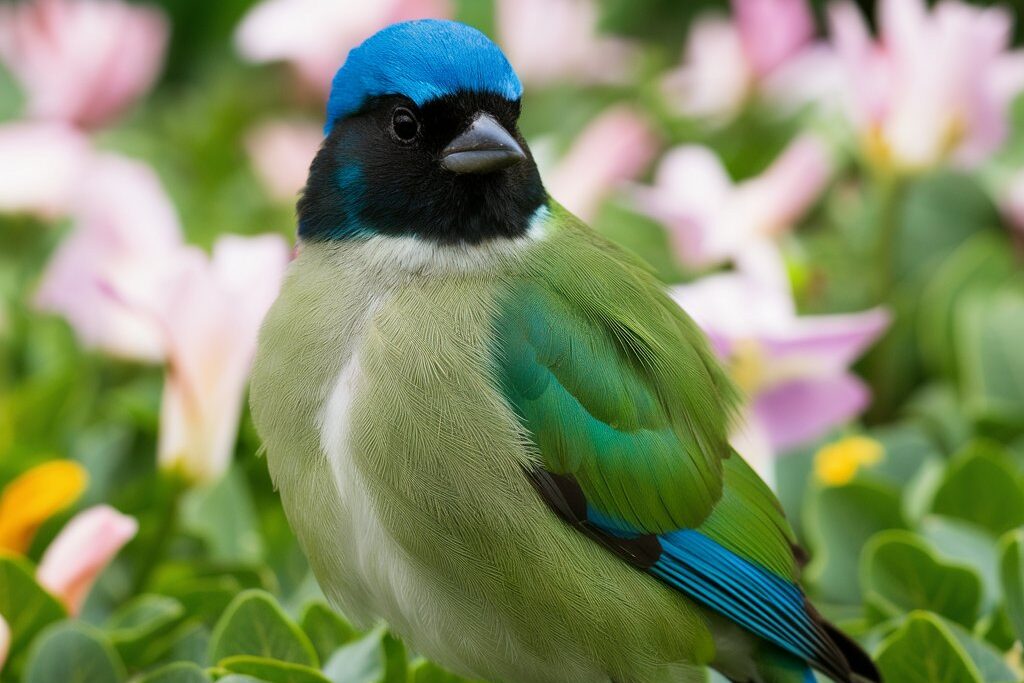
A balanced diet is crucial for maintaining your bird’s health and happiness. Ensuring that your feathered friend receives a well-rounded diet not only supports their physical health but also contributes to their overall well-being. In this article, we’ll explore how to provide a balanced diet as part of your comprehensive bird health checklist.
Why a Balanced Diet is Essential for Birds
**1. Nutritional Requirements
Birds, like all animals, have specific nutritional needs that vary depending on their species, age, and health. A balanced diet ensures that these needs are met, providing the essential nutrients necessary for optimal health.
- Macronutrients: Birds require a balance of proteins, fats, and carbohydrates.
- Micronutrients: Essential vitamins and minerals support various bodily functions and prevent deficiencies.
**2. Preventing Health Issues
A balanced diet helps prevent a range of health issues that can arise from nutritional imbalances, such as obesity, malnutrition, and vitamin deficiencies.
- Obesity: Overfeeding or providing the wrong types of food can lead to obesity, which impacts overall health.
- Deficiencies: Lack of specific nutrients can result in conditions like feather plucking or weakened immune function.
Key Components of a Balanced Diet
**1. Pellets: The Nutritional Cornerstone
Pellets are formulated to provide a comprehensive mix of essential nutrients. They should form the foundation of your bird’s diet.
- Complete Nutrition: High-quality pellets offer a balanced blend of proteins, vitamins, and minerals.
- Avoiding Selectivity: Pellets prevent selective eating, ensuring your bird gets a well-rounded diet.
**2. Fresh Fruits: Nature’s Treats
Fruits provide natural vitamins and minerals and add variety to your bird’s diet.
- Safe Choices: Offer bird-safe fruits like apples, bananas, and berries.
- Moderation: Fruits should be given in moderation due to their natural sugar content.
**3. Vegetables: Vital for Vitamins and Minerals
Vegetables are essential for providing a range of nutrients and should be included regularly.
- Variety: Include a mix of vegetables such as carrots, leafy greens, and bell peppers.
- Preparation: Wash vegetables thoroughly and cut them into manageable pieces for your bird.
**4. Seeds and Nuts: Nutrient-Dense Treats
Seeds and nuts can be healthy treats but should be offered in moderation to avoid excessive fat intake.
- Nutrient Boost: Provide seeds and nuts as occasional treats to add variety and extra nutrition.
- Portion Control: Monitor quantities to prevent overfeeding and ensure a balanced diet.
**5. Whole Grains: For Fiber and Energy
Whole grains contribute essential fiber and energy to your bird’s diet.
- Healthy Options: Offer grains like quinoa, brown rice, and oats.
- Cooking: Cook grains before offering them to ensure they are easily digestible.
**6. Sprouts: Nutrient Powerhouses
Sprouts are packed with vitamins and enzymes, making them a highly nutritious addition to your bird’s diet.
- Variety: Include a range of sprouts like alfalfa, mung beans, and radish.
- Freshness: Ensure sprouts are fresh and free from mold.
**7. Calcium Sources: Essential for Bone Health
Calcium is crucial for strong bones and overall health, especially for laying females.
- Natural Sources: Offer calcium-rich foods like kale, broccoli, and cuttlebone.
- Supplementation: Consider calcium supplements if recommended by your veterinarian.
**8. Hydration: The Foundation of Health
Adequate hydration is essential for maintaining your bird’s overall health.
- Fresh Water: Always provide clean, fresh water and change it daily.
- Monitor Intake: Ensure your bird is drinking enough water to stay hydrated.
Practical Tips for Implementing a Balanced Diet
**1. Consult with an Avian Veterinarian
Consult an avian veterinarian for personalized dietary recommendations based on your bird’s species, age, and health needs.
- Tailored Advice: A vet can provide specific guidance to meet your bird’s unique nutritional requirements.
**2. Avoid Overfeeding
Portion control is essential to prevent obesity and ensure that your bird maintains a healthy weight.
- Feeding Guidelines: Follow recommended portion sizes and avoid free-feeding.
**3. Introduce New Foods Gradually
When adding new foods to your bird’s diet, introduce them slowly to monitor how your bird reacts.
- Gradual Introduction: This helps prevent digestive upset and allows your bird to adjust to new tastes.
**4. Monitor Your Bird’s Health
Regularly observe your bird’s condition to ensure they are thriving on their diet.
- Health Indicators: Watch for signs of good health, such as a bright plumage, active behavior, and healthy droppings.
II. Ensure Clean, Fresh Water
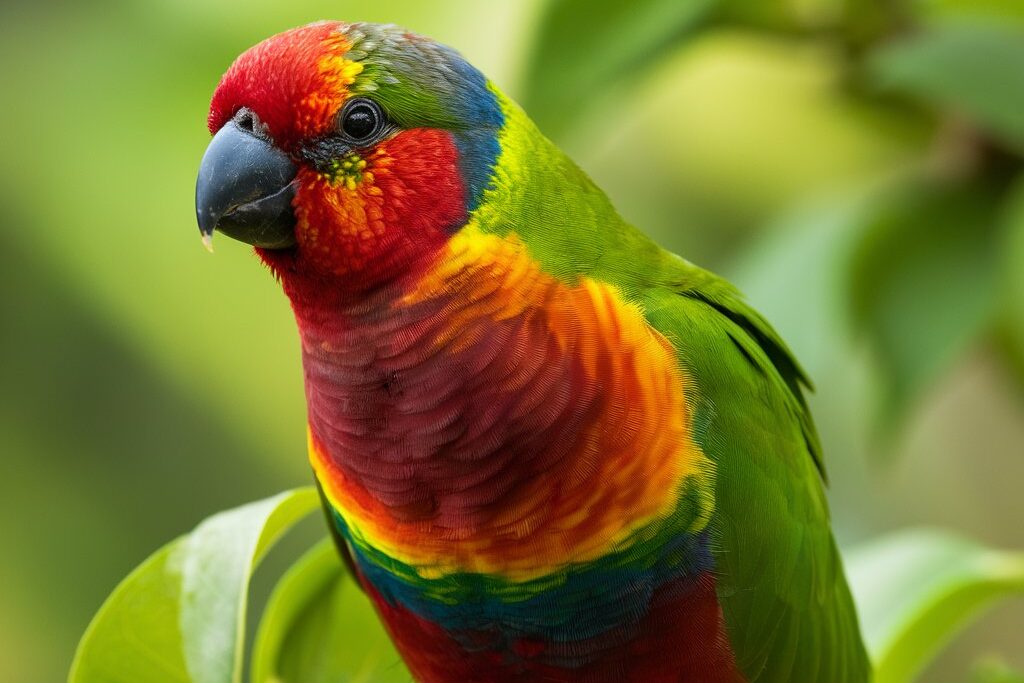
Providing clean, fresh water is a fundamental aspect of bird care that is often overlooked. Proper hydration is essential for maintaining your bird’s health, supporting bodily functions, and preventing a range of health issues. In this article, we’ll cover why clean water is crucial and how to ensure your bird always has access to it.
Why Clean, Fresh Water is Essential for Birds
**1. Maintaining Hydration
Water is vital for maintaining proper hydration. Dehydration can lead to serious health problems, including kidney issues and digestive disturbances.
- Hydration Balance: Water helps regulate body temperature, aids in digestion, and supports metabolic processes.
- Signs of Dehydration: Look for signs such as lethargy, sunken eyes, and dry droppings, which may indicate dehydration.
**2. Supporting Digestion
Adequate water intake supports healthy digestion and nutrient absorption.
- Digestion Aid: Water helps break down food and facilitates the movement of waste through the digestive system.
- Preventing Constipation: Ensuring proper hydration helps prevent constipation and promotes regular bowel movements.
**3. Promoting Overall Health
Clean water is crucial for overall well-being and can prevent health issues related to unclean or contaminated water.
- Preventing Disease: Contaminated water can harbor bacteria and pathogens, leading to infections or gastrointestinal problems.
- Supporting Health: Fresh water supports skin and feather health, as well as general vitality.
Best Practices for Providing Clean, Fresh Water
**1. Daily Water Changes
To ensure your bird always has access to clean water, it’s important to change the water daily.
- Regular Refreshing: Replace the water in your bird’s dish every day to keep it fresh and free from contaminants.
- Consistency: Make it a routine to change the water at the same time each day to establish consistency.
**2. Clean Water Dishes Regularly
The water dish itself needs regular cleaning to prevent the growth of bacteria and mold.
- Daily Cleaning: Wash the water dish daily with hot, soapy water and rinse thoroughly.
- Sanitize Weekly: Use bird-safe disinfectants to sanitize the dish and prevent bacterial buildup.
**3. Monitor Water Quality
Regularly check the water for any signs of contamination or changes in appearance.
- Visual Checks: Ensure the water is clear and free from floating particles or discoloration.
- Avoid Contamination: Keep the water dish away from food and other potential sources of contamination.
**4. Provide Water in a Safe Container
Choosing the right type of water container can help maintain water cleanliness and accessibility.
- Bird-Safe Containers: Use containers that are specifically designed for birds and are easy to clean.
- Avoid Open Dishes: Consider using a water bottle or container with a perch to reduce the risk of contamination from droppings.
**5. Ensure Proper Placement
Place the water dish in a location that is easily accessible for your bird but not prone to contamination.
- Accessible Location: Ensure the water dish is placed where your bird can easily reach it.
- Avoid Contamination: Keep the water dish away from the cage bottom and areas where it might be exposed to droppings or food debris.
Common Issues and Solutions
**1. Algae Growth
Algae can form in water dishes, especially if they are exposed to light.
- Solution: Clean the dish thoroughly and consider using a water container that limits exposure to light.
**2. Water Spillage
Water can spill from the dish, creating a mess and potential hygiene issues.
- Solution: Use spill-proof water containers or dishes with a secure fit to minimize spillage.
**3. Water Staleness
Stale water can develop a foul odor and may be less appealing to your bird.
- Solution: Regularly refresh the water to prevent it from becoming stale and unappealing.
Monitoring Your Bird’s Hydration
**1. Observe Drinking Habits
Monitor how much water your bird is drinking to ensure they are staying properly hydrated.
- Normal Intake: Most birds drink small amounts throughout the day, so observe their drinking habits for any significant changes.
- Seek Veterinary Advice: If you notice a sudden increase or decrease in water consumption, consult your veterinarian.
**2. Check for Signs of Dehydration
Keep an eye out for any signs of dehydration, which can include:
- Lethargy: Reduced activity or energy levels.
- Dry Droppings: Small, dry, or hard droppings may indicate insufficient water intake.
III. Maintain Proper Cage Hygiene
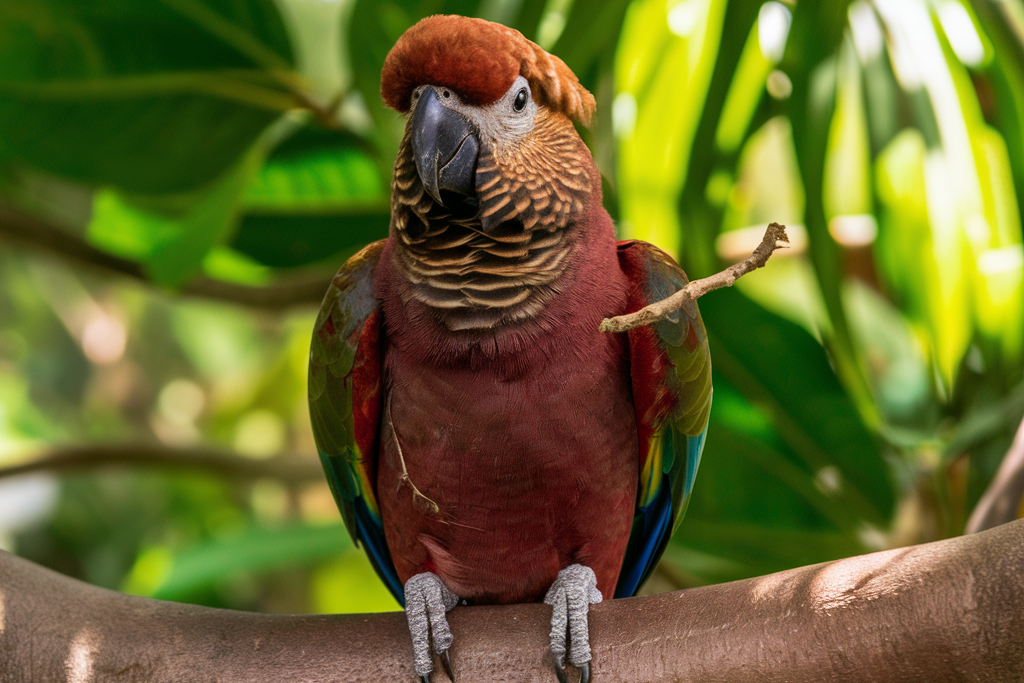
Proper cage hygiene is a critical component of bird care that significantly impacts your pet’s overall health and well-being. A clean cage environment helps prevent disease, promotes good health, and ensures your bird lives in a safe and comfortable space. In this article, we’ll discuss essential practices for maintaining proper cage hygiene and why it should be a key part of your bird health checklist.
Why Proper Cage Hygiene is Crucial for Bird Health
**1. Disease Prevention
A clean cage reduces the risk of disease by preventing the buildup of harmful bacteria, mold, and parasites.
- Bacterial Growth: Dirty cages can harbor bacteria that may lead to infections or gastrointestinal issues.
- Mold and Fungi: Accumulated moisture and organic matter can foster mold and fungal growth, which can be harmful to your bird’s respiratory health.
**2. Parasite Control
Regular cleaning helps control and prevent parasite infestations, such as mites and lice.
- Prevent Infestations: Keeping the cage clean helps minimize the risk of parasites that can cause discomfort and health problems.
- Early Detection: Regular inspections during cleaning can help spot signs of parasites early.
**3. Odor Management
A well-maintained cage reduces unpleasant odors and ensures a more pleasant living environment for both you and your bird.
- Odor Control: Regular cleaning prevents the buildup of waste and other substances that can produce unpleasant smells.
- Fresh Environment: A clean cage contributes to a fresher, healthier habitat for your bird.
Best Practices for Maintaining Proper Cage Hygiene
**1. Daily Spot Cleaning
Perform daily spot cleaning to remove droppings, food remnants, and other waste materials.
- Remove Waste: Use a small scoop or brush to clean up droppings and uneaten food from the cage floor and perches.
- Check Dishes: Empty and clean water and food dishes daily to prevent contamination.
**2. Weekly Deep Cleaning
Conduct a thorough cleaning of the entire cage once a week to maintain a hygienic environment.
- Disassemble the Cage: Remove all accessories, perches, and dishes from the cage for cleaning.
- Wash and Sanitize: Use bird-safe disinfectants to clean and sanitize the cage bars, floor, and accessories. Ensure you rinse everything thoroughly to remove any chemical residues.
- Replace Cage Liner: Change the cage liner or bedding material to keep the floor clean and absorbent.
**3. Regular Disinfection
Incorporate regular disinfection as part of your cleaning routine to eliminate bacteria and other pathogens.
- Safe Disinfectants: Use disinfectants that are safe for birds and effective at killing germs and bacteria.
- Rinse Thoroughly: Ensure all disinfectant residues are rinsed away to avoid exposing your bird to harmful chemicals.
**4. Monitor and Address Moisture
Moisture control is crucial to prevent mold growth and maintain a clean cage environment.
- Dry Environment: Ensure the cage is dry and free from excess moisture, especially in corners and crevices.
- Ventilation: Maintain good ventilation in the cage area to reduce humidity and prevent moisture buildup.
**5. Inspect and Maintain Cage Accessories
Regularly inspect cage accessories such as perches, toys, and food dishes for cleanliness and wear.
- Clean Perches: Scrub perches with a brush and bird-safe cleaner to remove debris and prevent bacterial growth.
- Replace Worn Items: Replace any worn or damaged accessories to ensure they do not pose a risk to your bird’s health.
Common Cage Hygiene Issues and Solutions
**1. Mold Growth
Mold can develop in damp areas of the cage and poses a risk to your bird’s respiratory health.
- Solution: Regularly clean and dry the cage, and use dehumidifiers or proper ventilation to prevent mold growth.
**2. Odor Problems
Persistent odors can indicate a buildup of waste or mold.
- Solution: Increase the frequency of deep cleaning and ensure that all waste is removed promptly. Check for any sources of excess moisture.
**3. Parasite Infestations
Parasites such as mites can be a concern if cage hygiene is not maintained.
- Solution: Clean the cage thoroughly and consider using bird-safe parasite treatments if you notice signs of infestation.
Tips for Effective Cage Hygiene
**1. Establish a Routine
Develop a cleaning schedule and stick to it to ensure regular maintenance and hygiene.
- Daily and Weekly Tasks: Combine daily spot cleaning with weekly deep cleaning for optimal results.
**2. Use the Right Tools
Invest in tools and cleaning products that are specifically designed for bird cages.
- Cleaning Supplies: Use non-toxic cleaning solutions and tools that are easy to clean and maintain.
**3. Observe Your Bird’s Environment
Pay attention to any changes in your bird’s environment that might indicate hygiene issues.
- Health Indicators: Monitor your bird’s behavior and health for any signs that might suggest problems with cage cleanliness.
IV. Ensure Proper Sleep
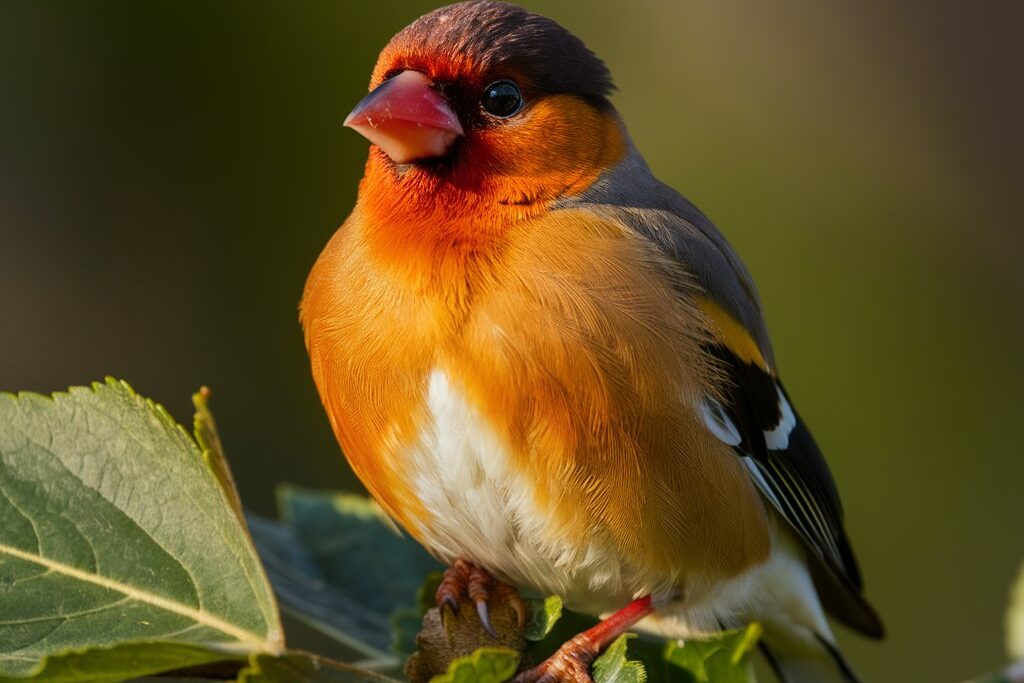
Ensuring your bird gets proper sleep is vital for their overall health and well-being. Just like in humans, adequate sleep is crucial for maintaining a bird’s physical health, mental stability, and behavioral balance. This article will guide you through why proper sleep is essential for birds and how to ensure your feathered friend gets the rest they need.
Why Proper Sleep is Essential for Birds
**1. Restores Physical Health
Quality sleep helps birds restore and maintain their physical health by allowing their bodies to repair and rejuvenate.
- Cellular Repair: During sleep, the body heals tissues, muscles, and cells, which is crucial for overall health.
- Energy Recovery: Adequate rest replenishes energy levels, enabling birds to stay active and healthy throughout the day.
**2. Supports Mental Health
Sleep is vital for cognitive function and emotional stability in birds.
- Stress Reduction: Proper sleep helps reduce stress and anxiety, contributing to a more balanced and less fearful demeanor.
- Behavioral Balance: Well-rested birds are less likely to exhibit behavioral issues such as aggression or excessive noise.
**3. Regulates Hormones
Sleep plays a role in regulating hormones that affect growth, reproduction, and overall health.
- Hormonal Balance: Adequate sleep supports the regulation of hormones that influence growth, feather development, and reproductive cycles.
- Health Maintenance: Balanced hormone levels are essential for maintaining general health and preventing disorders.
Best Practices for Ensuring Proper Sleep for Your Bird
**1. Establish a Consistent Sleep Schedule
Maintaining a regular sleep schedule helps regulate your bird’s internal clock and ensures they get enough rest.
- Routine: Set a consistent bedtime and wake-up time for your bird, even on weekends, to establish a regular sleep pattern.
- Darkness and Light: Mimic natural light cycles by providing 10-12 hours of darkness each night to signal bedtime.
**2. Create a Comfortable Sleeping Environment
Provide a cozy and secure sleeping area that meets your bird’s needs for comfort and security.
- Safe Sleeping Space: Ensure the sleeping area is free from drafts, noise, and disturbances that might interrupt your bird’s sleep.
- Cage Cover: Use a breathable cage cover to provide a sense of security and darkness, which can help signal bedtime.
**3. Minimize Nighttime Disturbances
Reduce disruptions during your bird’s sleep hours to help them stay rested and undisturbed.
- Quiet Environment: Keep the environment quiet and calm during nighttime hours to avoid startling or waking your bird.
- Limit Interaction: Avoid handling or interacting with your bird during their designated sleep time to prevent interruptions.
**4. Provide a Secure Sleeping Perch
Ensure that your bird has a safe and comfortable perch for sleeping.
- Appropriate Perch: Provide a perch that is suitable for your bird’s size and species, ensuring it is comfortable for sleeping.
- Placement: Place the perch in a quiet, secure location within the cage where your bird can rest undisturbed.
**5. Monitor Sleep Patterns
Pay attention to your bird’s sleep habits to identify any changes that might indicate health issues or stress.
- Observation: Observe your bird’s sleep patterns and note any changes in behavior or sleeping habits.
- Consult a Vet: If you notice irregular sleep patterns or signs of sleep disturbances, consult a veterinarian for advice.
Common Sleep-Related Issues and Solutions
**1. Sleep Disruptions
External factors such as noise or light can disrupt your bird’s sleep.
- Solution: Use a cage cover to block out light and reduce noise levels in the bird’s sleeping area.
**2. Inadequate Sleeping Space
A poorly designed or uncomfortable sleeping space can affect sleep quality.
- Solution: Ensure the sleeping area is designed to be cozy, secure, and suitable for your bird’s needs.
**3. Health Problems Affecting Sleep
Health issues such as respiratory infections or parasites can interfere with sleep.
- Solution: Regularly monitor your bird’s health and seek veterinary care if you suspect any health issues affecting their sleep.
Tips for Promoting Good Sleep Hygiene
**1. Provide a Consistent Routine
Establish and stick to a consistent daily routine to help regulate your bird’s sleep schedule.
- Routine Maintenance: Ensure that the sleep schedule and environment remain consistent to support healthy sleep patterns.
**2. Create a Relaxing Bedtime Routine
Establish a calming pre-sleep routine to help your bird wind down before bedtime.
- Calm Activities: Engage in quiet, soothing activities in the hour leading up to bedtime to help your bird relax.
**3. Avoid Overstimulation Before Bed
Minimize stimulating activities that can disrupt your bird’s ability to fall asleep.
- Pre-Bedtime Calm: Reduce playtime and interaction as bedtime approaches to help your bird transition smoothly to sleep.
V. Monitor for Behavioral Changes
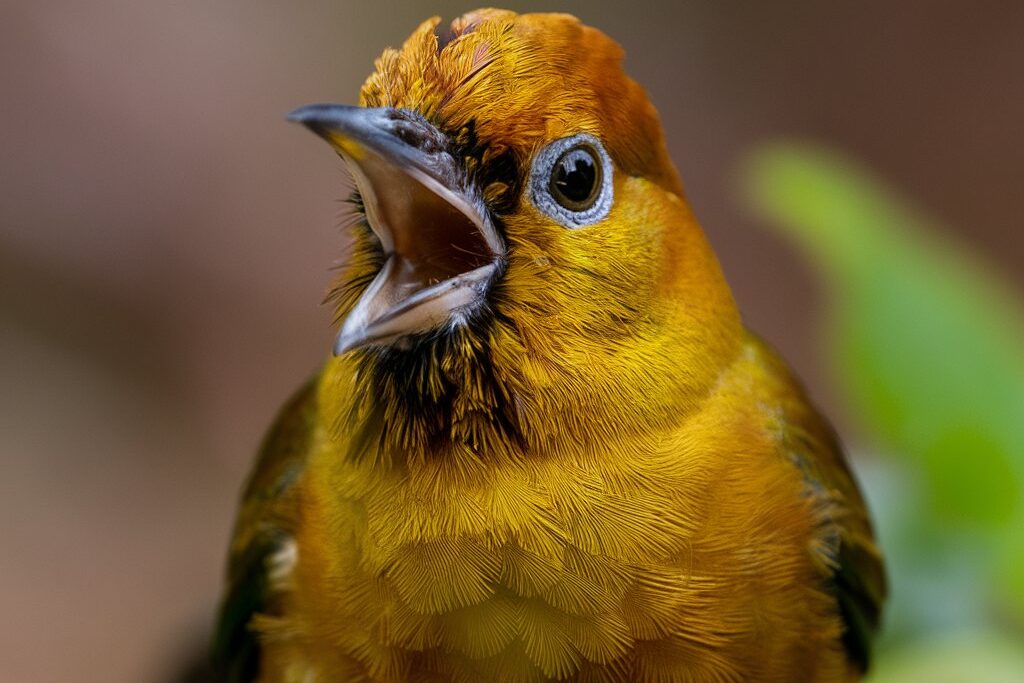
Behavioral changes in birds can be a crucial indicator of their overall health. As a responsible bird owner, keeping an eye on your pet’s behavior can help you detect potential health issues early, ensuring timely intervention and effective treatment. In this article, we’ll discuss why monitoring behavioral changes is essential and provide tips on how to observe and respond to your bird’s behavior as part of your comprehensive bird health checklist.
Why Monitoring Behavioral Changes is Crucial
**1. Early Detection of Illness
Behavioral changes often precede visible symptoms of illness, making them a valuable early warning system.
- Subtle Indicators: Changes in behavior such as reduced activity or altered eating habits can signal underlying health problems before more obvious symptoms appear.
- Prompt Action: Identifying these changes early allows for timely veterinary intervention, improving the chances of successful treatment.
**2. Understanding Stress and Environmental Factors
Behavioral changes can also indicate stress or issues related to the bird’s environment.
- Stress Indicators: Birds may exhibit stress-related behaviors such as feather plucking, excessive vocalization, or aggression.
- Environmental Issues: Changes in behavior can signal problems with cage setup, diet, or social interactions that need addressing.
**3. Assessing Overall Well-Being
Regular monitoring helps ensure your bird’s general well-being and quality of life.
- Behavioral Baseline: Understanding your bird’s normal behavior provides a baseline for detecting deviations that may indicate health issues.
- Health Maintenance: Observing behavioral patterns helps you maintain your bird’s health by ensuring they are active, social, and engaged.
Key Behavioral Changes to Watch For
**1. Changes in Eating and Drinking Habits
Significant alterations in food and water intake can be a sign of health issues.
- Decreased Appetite: A sudden loss of appetite or refusal to eat may indicate illness or discomfort.
- Increased Thirst: Drinking more water than usual can signal dehydration, diabetes, or kidney issues.
**2. Alterations in Activity Levels
Changes in your bird’s activity level can reveal health concerns.
- Lethargy: Reduced activity or excessive sleeping may be a sign of illness or depression.
- Hyperactivity: Excessive restlessness or pacing can indicate stress, discomfort, or neurological issues.
**3. Behavioral Aggression or Withdrawal
Shifts in social behavior can reflect health or environmental issues.
- Aggression: Increased aggression or biting may indicate stress, pain, or territorial issues.
- Withdrawal: Isolation or reluctance to interact can be a sign of illness or discomfort.
**4. Feather and Skin Changes
Observing changes in feather condition or skin can provide health clues.
- Feather Plucking: Excessive feather plucking can signal stress, boredom, or skin problems.
- Skin Abnormalities: Dry, flaky skin or abnormal coloration can indicate health issues or poor environmental conditions.
**5. Vocalization Changes
Alterations in vocal behavior can reflect physical or emotional health.
- Increased Vocalization: Excessive chirping or screaming may indicate stress, discomfort, or a need for attention.
- Reduced Vocalization: A sudden decrease in vocalization can be a sign of illness or depression.
Tips for Monitoring Behavioral Changes
**1. Establish a Routine Observation
Regularly observe your bird’s behavior to notice any deviations from their usual patterns.
- Daily Checks: Spend time each day watching and interacting with your bird to establish a behavioral baseline.
- Note Changes: Keep a journal of any observed changes, including duration, frequency, and possible triggers.
**2. Create a Comfortable Environment
Ensure that your bird’s environment is conducive to their well-being to minimize stress-related behavioral changes.
- Comfortable Habitat: Provide a well-maintained cage with appropriate toys, perches, and social interaction opportunities.
- Avoid Stressors: Minimize exposure to loud noises, sudden changes, and other stressors that may affect your bird’s behavior.
**3. Consult a Veterinarian
If you notice significant or persistent behavioral changes, seek veterinary advice to rule out underlying health issues.
- Professional Evaluation: A veterinarian can conduct a thorough examination to identify any health problems or environmental factors contributing to behavioral changes.
- Follow-Up: Follow the vet’s recommendations for treatment or adjustments to your bird’s care routine.
**4. Provide Enrichment
Offer mental and physical enrichment to keep your bird engaged and reduce the likelihood of behavioral issues.
- Interactive Toys: Use toys and activities that stimulate your bird’s mind and body.
- Social Interaction: Regularly interact with your bird to foster a strong bond and prevent loneliness.
VI. Schedule Regular Veterinary Check-Ups
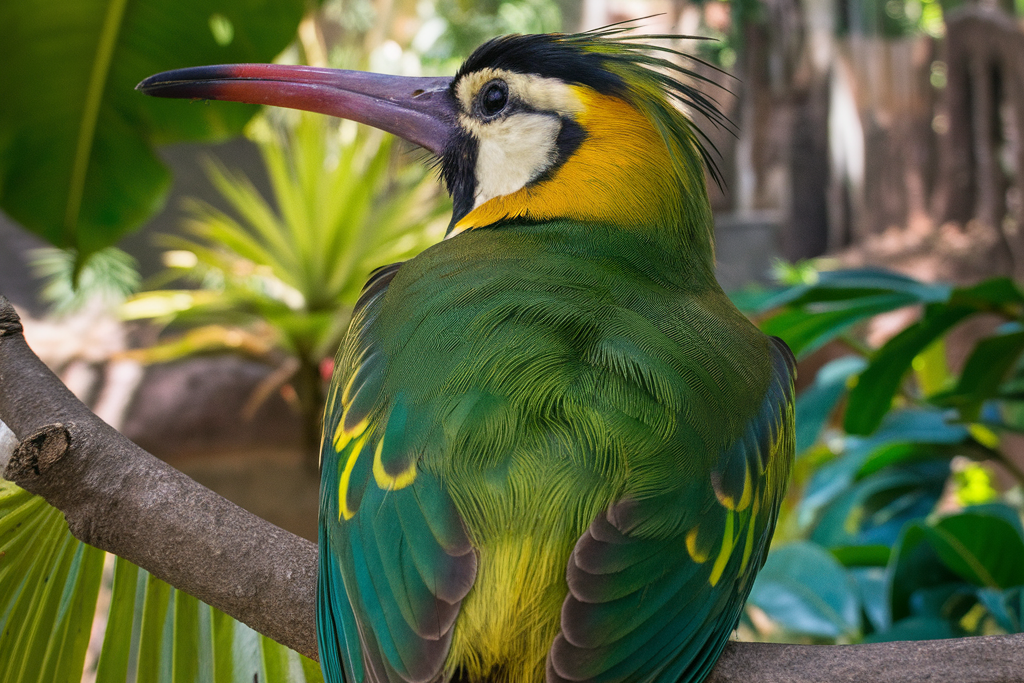
Regular veterinary check-ups are crucial for maintaining your bird’s health and ensuring a long, happy life. Unlike some pets, birds can often mask signs of illness until a problem becomes severe. Scheduling routine vet visits allows you to monitor your bird’s health proactively, catch potential issues early, and provide the best care possible. In this article, we’ll cover why regular veterinary check-ups are essential and how to effectively incorporate them into your bird health checklist.
Why Regular Veterinary Check-Ups Are Essential
**1. Early Detection of Health Issues
Routine check-ups help identify health problems before they become severe.
- Preventive Care: Regular visits allow veterinarians to detect early signs of common bird diseases, such as avian flu, mites, or nutritional deficiencies.
- Timely Intervention: Early diagnosis means timely treatment, which can prevent more serious health complications and ensure a better outcome.
**2. Monitoring Ongoing Health
Regular exams track your bird’s health over time.
- Growth and Development: For young birds, regular check-ups ensure proper growth and development, while older birds benefit from monitoring age-related changes.
- Health Trends: Ongoing veterinary care helps track health trends and detect any gradual changes that may need addressing.
**3. Updating Vaccinations and Preventive Treatments
Routine vet visits are an opportunity to keep vaccinations and preventive treatments up-to-date.
- Vaccinations: Ensure your bird receives necessary vaccines to protect against avian diseases.
- Parasite Control: Regular check-ups allow for the administration of preventive treatments for parasites such as mites, lice, or worms.
**4. Advice on Diet and Behavior
Veterinary visits provide valuable insights into your bird’s diet and behavior.
- Diet Recommendations: A vet can offer advice on balanced nutrition and dietary adjustments based on your bird’s specific needs.
- Behavioral Guidance: Discuss any behavioral concerns with your vet to receive guidance on training, enrichment, and environmental adjustments.
How to Incorporate Regular Veterinary Check-Ups into Your Bird Health Checklist
**1. Choose an Avian Veterinarian
Select a veterinarian who specializes in bird care to ensure your bird receives expert treatment.
- Specialization: Look for a vet with experience in avian medicine and knowledge of various bird species.
- Recommendations: Seek recommendations from other bird owners or pet care professionals to find a reputable avian vet.
**2. Schedule Annual Check-Ups
Plan for annual check-ups as a standard part of your bird’s health routine.
- Annual Visits: Schedule a veterinary exam at least once a year to ensure regular monitoring and preventive care.
- Health Records: Keep detailed health records and track any changes or concerns that arise between visits.
**3. Prepare for the Vet Visit
Prepare your bird and yourself for a smooth and productive vet visit.
- Cage or Carrier: Transport your bird in a secure and comfortable carrier to reduce stress during travel.
- Health History: Bring a record of any recent changes in your bird’s behavior, diet, or health to discuss with the vet.
**4. Follow Veterinary Recommendations
Adhere to the advice and treatment plans provided by your veterinarian.
- Medication and Treatment: Follow prescribed treatments, including medications and preventive measures, to support your bird’s health.
- Dietary Adjustments: Implement dietary changes recommended by the vet to ensure balanced nutrition.
**5. Monitor Health Between Visits
Stay vigilant about your bird’s health between veterinary visits.
- Observe Behavior: Watch for any changes in behavior, appetite, or droppings that may indicate health issues.
- Maintain Environment: Ensure your bird’s living environment is clean and comfortable to prevent health problems.
Common Reasons for Additional Vet Visits
**1. Sudden Behavioral Changes
Significant or sudden changes in behavior may require an immediate vet visit.
- Behavioral Signs: Unexplained aggression, lethargy, or withdrawal can be signs of underlying health issues that need attention.
**2. Physical Symptoms
Visible symptoms such as changes in feathers, beak, or droppings may necessitate a veterinary evaluation.
- Symptom Monitoring: If you notice physical changes, such as feather loss or abnormal droppings, schedule a vet appointment to address the issue.
**3. Pre-Surgical or Post-Surgical Care
If your bird requires surgery, follow-up care is essential for recovery.
- Post-Surgery Visits: Ensure your bird receives follow-up care as directed by the veterinarian to monitor recovery and address any complications.
VII. Create a Safe and Stimulating Environment
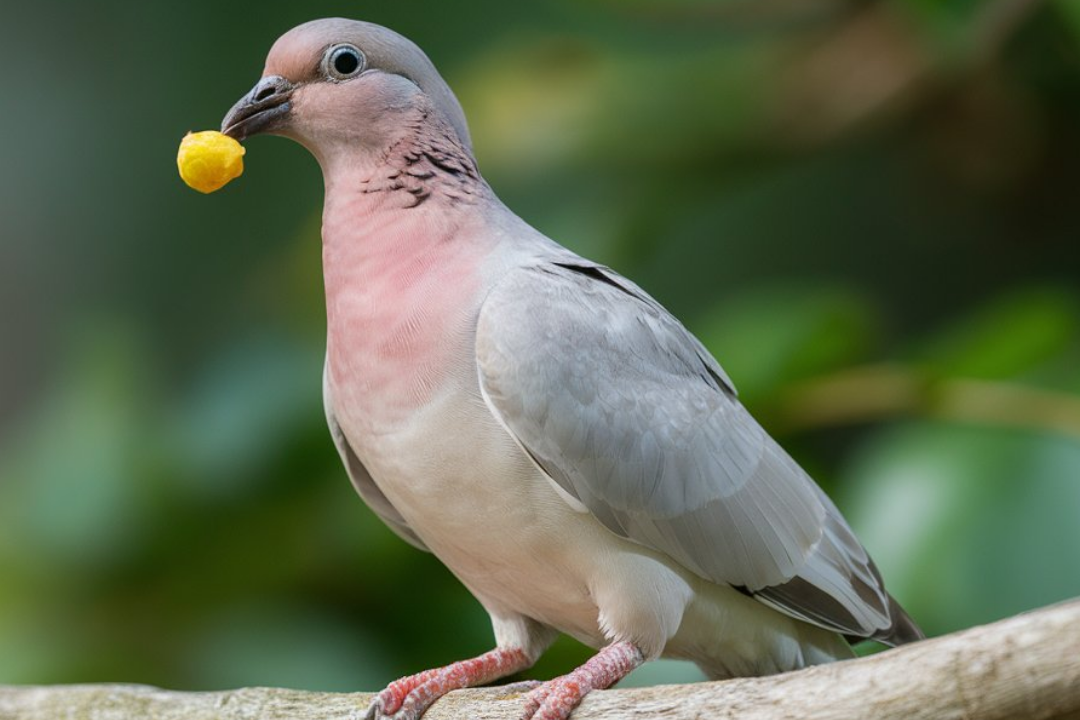
Creating a safe and stimulating environment is crucial for the health and happiness of your pet bird. Birds are highly sensitive to their surroundings, and an enriched, secure environment can prevent stress, encourage natural behaviors, and support overall well-being. In this article, we’ll explore why a well-designed habitat is essential and provide practical tips for setting up the ideal environment for your feathered friend as part of your bird health checklist.
Why a Safe and Stimulating Environment Matters
**1. Promotes Physical and Mental Health
A stimulating environment supports both physical and mental health, reducing the risk of behavioral problems and stress-related issues.
- Physical Activity: Providing space for exercise and movement helps maintain your bird’s physical health and prevents obesity.
- Mental Stimulation: Enrichment activities, such as toys and interactive elements, keep your bird mentally engaged and prevent boredom.
**2. Reduces Stress and Behavioral Issues
A safe and well-designed habitat minimizes stress, which can lead to behavioral problems and health issues.
- Stress Reduction: A secure environment helps your bird feel safe and reduces anxiety, which can otherwise manifest as feather plucking, aggression, or excessive vocalization.
- Behavioral Health: Enrichment and comfort reduce the likelihood of destructive behaviors and support overall behavioral health.
**3. Encourages Natural Behaviors
A well-crafted environment allows your bird to exhibit natural behaviors and engage in activities that are essential for their well-being.
- Exploration: Providing various perches, toys, and climbing opportunities encourages exploration and natural foraging behavior.
- Social Interaction: A safe and stimulating environment fosters healthy social behaviors and bonding with you and other birds.
How to Create a Safe and Stimulating Environment
**1. Choose the Right Cage Size and Type
Select a cage that meets your bird’s needs in terms of size, shape, and features.
- Cage Size: Ensure the cage is spacious enough for your bird to move around comfortably. Larger cages allow for more freedom and enrichment opportunities.
- Cage Type: Choose a cage with appropriate bar spacing to prevent escapes and injuries. The cage should also be made of safe, non-toxic materials.
**2. Provide Varied Perches and Climbing Opportunities
Perches and climbing structures are essential for physical exercise and mental stimulation.
- Different Sizes and Textures: Use perches of various sizes and textures to promote foot health and prevent boredom. Include natural branches, rope perches, and manzanita wood.
- Climbing Toys: Install climbing toys and ropes to encourage movement and exploration.
**3. Incorporate Enrichment Toys and Activities
Enrichment toys and activities keep your bird mentally stimulated and engaged.
- Interactive Toys: Provide toys that challenge your bird’s problem-solving skills, such as puzzle toys or treat-dispensing devices.
- Foraging Opportunities: Hide food in foraging toys or around the cage to encourage natural foraging behavior.
**4. Create a Comfortable Sleeping Area
A comfortable and secure sleeping area is vital for your bird’s health and rest.
- Sleep Perch: Install a comfortable sleep perch or sleeping hut where your bird can retreat for rest. Ensure it’s placed away from direct light and drafts.
- Night Cover: Use a cage cover or a cloth to create a dark and quiet environment during sleep time.
**5. Maintain a Clean and Healthy Environment
Regular cleaning and maintenance are crucial for preventing disease and ensuring a healthy habitat.
- Daily Cleaning: Remove uneaten food, droppings, and debris from the cage daily to prevent bacterial growth and unpleasant odors.
- Weekly Deep Cleaning: Perform a thorough cleaning of the cage, including perches, toys, and food dishes, at least once a week.
**6. Ensure Proper Ventilation and Lighting
Proper ventilation and lighting are essential for your bird’s health and comfort.
- Ventilation: Ensure the cage is located in a well-ventilated area to prevent respiratory issues and ensure fresh air circulation.
- Lighting: Provide natural or full-spectrum lighting to support your bird’s circadian rhythms and overall health. Avoid placing the cage in direct sunlight or near heat sources.
**7. Provide Social Interaction and Companionship
Social interaction and companionship are important for your bird’s emotional well-being.
- Human Interaction: Spend quality time interacting with your bird daily to strengthen your bond and provide social stimulation.
- Bird Companions: If appropriate, consider having a second bird to provide companionship and reduce loneliness.
Common Mistakes to Avoid
**1. Inadequate Cage Size
A cage that is too small can restrict movement and lead to health problems.
- Proper Size: Ensure the cage is large enough to allow your bird to stretch its wings, climb, and move freely.
**2. Toxic Materials and Unsafe Toys
Using unsafe materials or toys can pose health risks to your bird.
- Safe Materials: Use non-toxic, bird-safe materials for perches, toys, and cage accessories.
**3. Lack of Enrichment
An environment lacking in enrichment can lead to boredom and behavioral issues.
- Variety: Offer a variety of toys and activities to keep your bird engaged and mentally stimulated.
VIII. Support Social Interaction
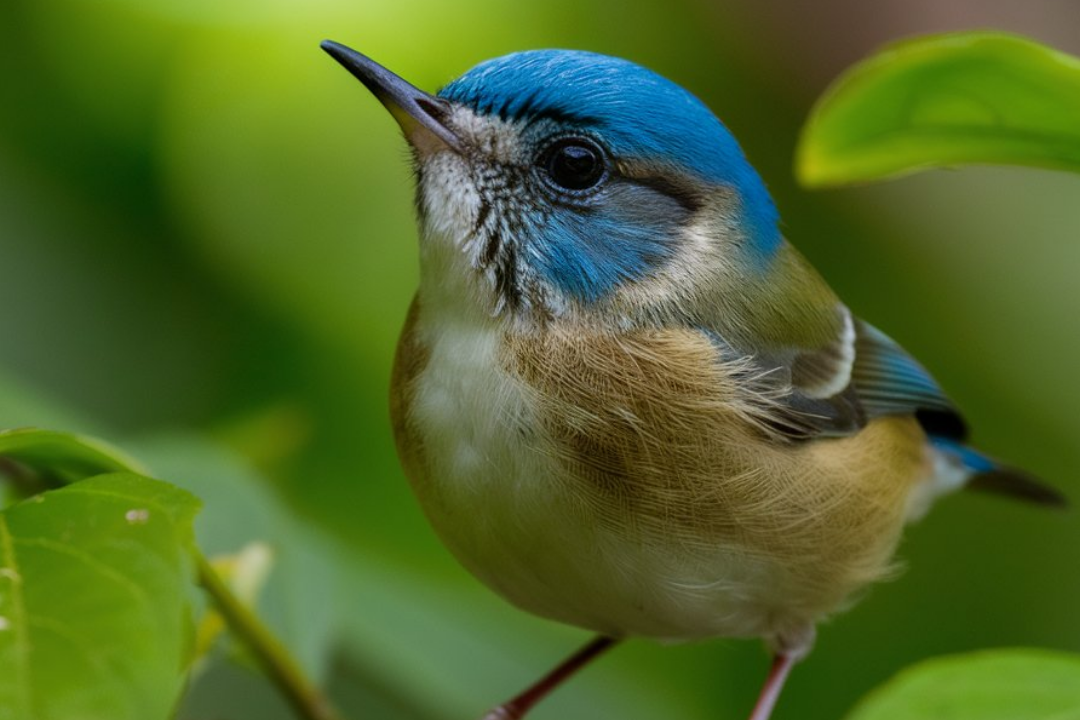
Supporting social interaction is a crucial aspect of maintaining your bird’s health and happiness. Birds are inherently social creatures, and their well-being depends significantly on their social environment and relationships. In this article, we’ll explore why social interaction is vital for your bird’s health and provide actionable tips to ensure your feathered friend thrives in a socially enriched environment. This guidance is an essential part of your bird health checklist.
Why Social Interaction is Essential for Bird Health
**1. Prevents Loneliness and Boredom
Social interaction helps prevent loneliness and boredom, which can lead to stress and behavioral issues.
- Companionship: Birds that are isolated may experience anxiety and depression. Regular interaction with their owners or other birds provides the companionship they need.
- Enrichment: Social engagement offers mental stimulation and prevents boredom, which can result in destructive behaviors such as feather plucking or excessive vocalization.
**2. Enhances Mental Stimulation
Engaging with your bird socially provides valuable mental stimulation that supports cognitive health.
- Interactive Play: Social activities, such as interactive games and training sessions, challenge your bird’s intelligence and keep their mind active.
- Problem-Solving: Social interaction can involve problem-solving tasks and learning new tricks, which stimulate your bird’s brain.
**3. Fosters Healthy Social Skills
Birds that regularly interact with their owners or other birds develop better social skills and adaptability.
- Behavioral Health: Birds that experience positive social interactions are more likely to exhibit balanced and healthy behaviors.
- Social Bonds: Healthy social bonds contribute to emotional stability and overall well-being.
How to Support Social Interaction
**1. Spend Quality Time Daily
Dedicate time each day to interact with your bird to build and maintain a strong bond.
- Training Sessions: Engage in short, positive training sessions to teach new tricks or reinforce good behavior.
- Playtime: Spend time playing with your bird using toys, games, and interactive activities to keep them entertained and engaged.
**2. Provide Opportunities for Interaction with Other Birds
If appropriate, consider adding another bird to your household to provide companionship.
- Bird Companions: Introducing a second bird can help prevent loneliness and provide social interaction, but be sure to research compatibility and gradual introductions.
- Socialization: Allow your birds to interact under supervision to ensure they form healthy and positive relationships.
**3. Incorporate Social Enrichment Activities
Include activities that promote social interaction and mental stimulation.
- Interactive Toys: Use toys that encourage cooperative play, such as puzzle toys or toys that dispense treats.
- Foraging Opportunities: Create foraging activities that involve searching for hidden treats, stimulating natural behaviors and interaction.
**4. Encourage Interaction with Family Members
Allow different family members to interact with your bird to promote socialization and adaptability.
- Varied Interactions: Ensure your bird has positive experiences with various people in your household to enhance social skills and reduce the fear of strangers.
- Consistent Handling: Encourage all family members to handle the bird gently and consistently to build trust and comfort.
**5. Observe and Respond to Social Cues
Pay attention to your bird’s social cues and respond accordingly to their needs.
- Behavioral Signs: Watch for signs of stress, aggression, or withdrawal, and adjust social interactions to ensure a positive experience.
- Emotional Needs: Be responsive to your bird’s emotional needs and provide comfort and reassurance when necessary.
Common Mistakes to Avoid
**1. Ignoring Social Needs
Failing to provide adequate social interaction can lead to behavioral and emotional issues.
- Regular Interaction: Ensure you consistently provide social interaction and enrichment to meet your bird’s needs.
**2. Overlooking Socialization with Other Birds
Not considering the social needs of birds that prefer company can lead to stress and loneliness.
- Proper Introduction: When introducing a new bird, follow proper introduction protocols to ensure a smooth transition and healthy socialization.
**3. Inadequate Interaction Time
Limited interaction time can result in boredom and behavioral problems.
- Daily Engagement: Commit to spending quality time with your bird daily to support their emotional and mental well-being.
IX. Regularly Check for Signs of Illness
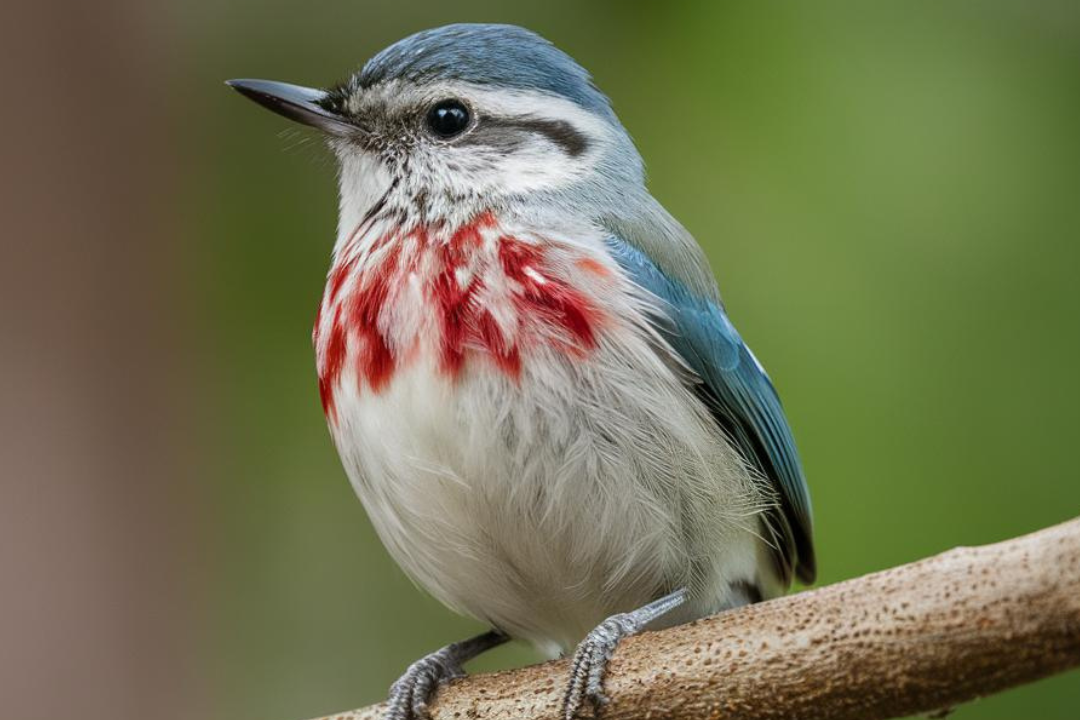
Regularly checking for signs of illness is a crucial aspect of maintaining your bird’s health and ensuring its well-being. Birds are known for their ability to mask symptoms of illness, which can make early detection challenging. By proactively monitoring your bird’s health and observing for any changes, you can catch potential problems early and seek timely veterinary care. In this article, we’ll discuss the importance of regularly checking for signs of illness and provide practical tips to include this step in your bird health checklist.
Why Regular Monitoring is Essential
**1. Early Detection of Health Issues
Regular observation helps in the early detection of health issues before they escalate.
- Prevention: Identifying signs of illness early allows for prompt intervention, which can prevent minor issues from becoming severe health problems.
- Timely Treatment: Early diagnosis ensures timely treatment, improving the likelihood of successful outcomes and recovery.
**2. Understanding Normal Behavior
Monitoring your bird regularly helps you understand what is normal for your pet.
- Behavioral Baseline: By being familiar with your bird’s normal behavior and appearance, you can more easily spot any deviations that may indicate illness.
- Health Awareness: Knowing what is typical for your bird helps you to notice changes that might be signs of health issues.
**3. Preventing Complications
Routine checks can help prevent complications and manage chronic conditions.
- Complication Prevention: Regular monitoring can help prevent complications associated with underlying health conditions by addressing issues early.
- Chronic Care: For birds with chronic health conditions, regular checks are essential for managing their health effectively and making necessary adjustments to their care plan.
Key Signs of Illness to Monitor
**1. Changes in Appetite or Drinking Habits
Observe any changes in your bird’s eating or drinking patterns.
- Appetite Changes: A sudden increase or decrease in appetite can indicate health issues such as digestive problems or infections.
- Drinking Habits: Changes in drinking habits, such as excessive thirst or decreased water intake, may signal underlying health problems.
**2. Abnormal Droppings
Monitor your bird’s droppings for any abnormalities.
- Consistency and Color: Changes in the consistency, color, or odor of droppings can be indicative of gastrointestinal issues or other health concerns.
- Frequency: An increase or decrease in the frequency of droppings may also signal health problems.
**3. Feather and Skin Issues
Check for abnormalities in your bird’s feathers and skin.
- Feather Condition: Look for signs of feather loss, excessive moulting, or abnormal feather texture, which can indicate health problems such as parasitic infections or nutritional deficiencies.
- Skin Issues: Monitor for signs of itching, redness, or lesions on the skin, which could be related to infections or external parasites.
**4. Behavioral Changes
Observe any changes in your bird’s behavior.
- Activity Levels: A sudden drop in activity levels or an increase in lethargy can be a sign of illness.
- Social Behavior: Changes in social behavior, such as withdrawal or aggression, may indicate health issues or stress.
**5. Breathing Difficulties
Watch for any signs of respiratory distress.
- Breathing Sounds: Listen for abnormal breathing sounds such as wheezing or labored breathing.
- Nasal Discharge: Monitor for nasal discharge or changes in the bird’s breathing patterns.
**6. Changes in Weight
Regularly monitor your bird’s weight to detect any unusual changes.
- Weight Fluctuations: Significant weight loss or gain can be a sign of underlying health issues and should be addressed with a veterinarian.
**7. Swollen or Discolored Beak and Feet
Check your bird’s beak and feet for any swelling or discoloration.
- Beak Condition: Swelling, cracking, or discoloration of the beak can indicate health problems such as infections or nutritional deficiencies.
- Foot Health: Changes in the appearance of your bird’s feet, including swelling or discoloration, can be a sign of health issues.
Practical Tips for Regular Health Checks
**1. Establish a Routine
Incorporate regular health checks into your daily or weekly routine.
- Daily Observations: Spend a few minutes each day observing your bird’s behavior, droppings, and overall appearance.
- Weekly Checks: Perform a more thorough check weekly, including monitoring weight and inspecting feathers and skin.
**2. Keep Detailed Records
Maintain detailed records of your bird’s health observations.
- Health Journal: Record any changes in behavior, appetite, and physical condition to track trends and share with your veterinarian.
- Documentation: Use a health journal or app to document any concerns or symptoms observed during your checks.
**3. Consult with a Veterinarian
Seek veterinary advice if you notice any concerning signs.
- Professional Assessment: Consult with an avian veterinarian if you observe any abnormal symptoms or behavior.
- Preventive Care: Regular veterinary visits complement your monitoring efforts and provide professional evaluation and treatment as needed.
**4. Provide a Comfortable Environment
Ensure your bird’s environment is comfortable and stress-free.
- Safe Space: Create a safe and enriching environment to reduce stress and promote overall health.
- Health Maintenance: A well-maintained habitat supports your bird’s health and can help prevent illness.
X. Educate Yourself Continuously
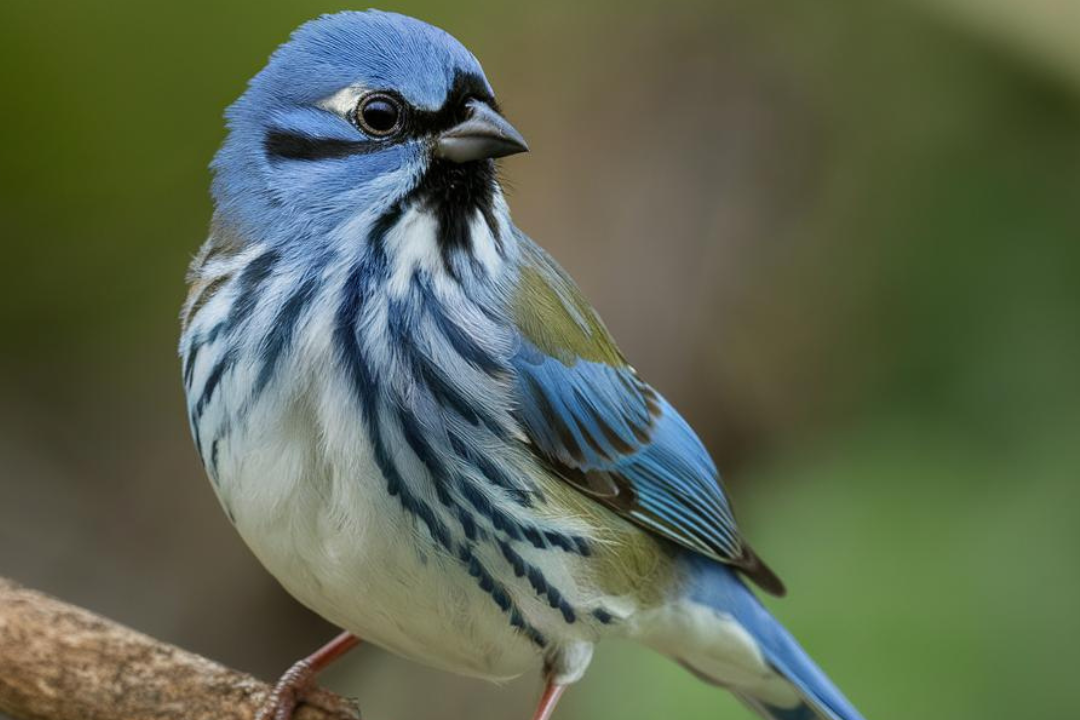
Owning a pet bird comes with the responsibility of ensuring its health and well-being. One crucial aspect of being a responsible bird owner is the continuous education about avian health and care. Keeping yourself updated with the latest information, research, and best practices will help you provide the best possible care for your feathered friend. In this article, we’ll explore why continuous education is essential and provide practical tips for staying informed as part of your bird health checklist.
Why Continuous Education Matters
**1. Stay Updated with Latest Research and Best Practices
The field of avian care is always evolving with new research and best practices.
- New Discoveries: Ongoing research can reveal new insights into bird health, nutrition, and behavior, helping you provide the most effective care.
- Updated Guidelines: Health recommendations and guidelines can change based on new findings, so staying informed ensures you’re following the latest advice.
**2. Prevent Health Issues Through Knowledge
Understanding avian health helps in preventing common issues and managing your bird’s well-being.
- Early Detection: Knowledge of symptoms and health indicators allows for early detection of potential problems.
- Preventive Care: Learning about preventive measures and best practices helps in avoiding health issues before they arise.
**3. Enhance Your Bird’s Quality of Life
Educating yourself about bird care enhances your ability to provide a better quality of life for your pet.
- Enrichment and Engagement: Understanding your bird’s needs and natural behaviors helps in creating an enriching environment that supports mental and physical health.
- Diet and Nutrition: Continuous learning about bird nutrition ensures you’re providing a balanced and varied diet that meets your bird’s specific needs.
Tips for Continuous Education
**1. Read Books and Articles on Avian Care
Books and articles are valuable resources for in-depth information on bird health and care.
- Recommended Reading: Seek out books written by avian veterinarians and experts that cover topics such as bird nutrition, behavior, and health.
- Online Articles: Follow reputable websites and online publications that offer updated information and tips on bird care.
**2. Attend Workshops and Seminars
Workshops and seminars offer opportunities for hands-on learning and interaction with experts.
- Local Workshops: Look for local avian clubs or organizations that host workshops and seminars on bird care and health.
- Online Webinars: Participate in online webinars and virtual conferences to learn from avian specialists and veterinarians.
**3. Join Avian Forums and Communities
Online forums and communities provide platforms for sharing knowledge and experiences with other bird owners.
- Discussion Groups: Join forums and social media groups dedicated to bird care to ask questions, share experiences, and learn from others.
- Expert Advice: Engage with experienced bird owners and avian professionals for practical advice and support.
**4. Consult with Avian Veterinarians
Regular consultations with avian veterinarians keep you informed about your bird’s health and any specific needs.
- Routine Check-Ups: Schedule regular veterinary visits to get professional advice and updates on your bird’s health.
- Specialist Insights: Consult with specialists for guidance on specific health issues or concerns.
**5. Follow Reputable Bird Care Websites
Reputable websites offer reliable information and resources for bird care.
- Educational Resources: Explore websites from reputable avian organizations and veterinary clinics for articles, guides, and videos on bird health.
- News Updates: Stay updated with news and developments related to bird care and health from trusted sources.
**6. Participate in Bird Care Courses
Enroll in online or in-person courses to gain structured knowledge on bird care.
- Online Courses: Look for online courses and certifications that cover various aspects of avian health and care.
- In-Person Classes: Attend local classes or workshops that focus on bird care and health topics.
**7. Keep a Health Journal
Maintain a health journal to track your bird’s health and care.
- Record Keeping: Document any changes in behavior, diet, and health observations, and review them periodically to identify patterns or issues.
- Reference Material: Use your journal as a reference when consulting with veterinarians or seeking advice.
Common Mistakes to Avoid
**1. Relying on Outdated Information
Using outdated information can lead to ineffective or harmful care practices.
- Current Research: Always verify that the information you’re using is up-to-date and based on recent research.
**2. Ignoring Professional Advice
Overlooking advice from avian veterinarians or experts can result in missed opportunities for improving your bird’s care.
- Consult Experts: Regularly consult with professionals to ensure you’re following the best practices for bird health.
**3. Overlooking Behavioral Changes
Failing to recognize and address behavioral changes can lead to health issues.
- Behavior Monitoring: Continuously observe your bird’s behavior and seek advice if you notice any changes that could indicate health problems.

